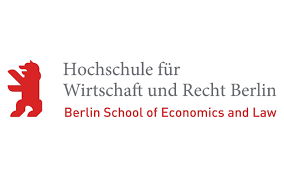👉 Curious about other finance-related programs or different subjects you can study in Germany? Explore more options in our study program overview.
Study Finance in Germany in 2025/2026

Contents
Looking to study finance in a country with a strong economy and great universities? Germany could be the perfect choice! Learn about financial markets, investments, and economic systems while living in the center of Europe.
Germany is a great place to begin your finance journey. You’ll get hands-on learning, meet people from many countries, and see how finance works in real life.
Learn more about the cost of living in Germany for international students to plan your budget.
Int. Study Programs
Universities
Cities
Why Study Finance in Germany?
Germany is a powerhouse in finance and economics, making it an ideal location for students interested in the field. If you're planning to study finance in Germany for international students, there are many benefits that make it a smart choice for your future:
- Renowned Finance Programs at Top German Universities: Germany has some of the best universities for finance, like the University of Mannheim and Frankfurt School of Finance & Management. These schools offer highly respected degrees with courses in areas like corporate finance, investing, and international banking, perfect for students who want to study finance in Germany in English.
- Practical Learning with Industry Connections: In Germany, finance students get real work experience through internships and events. Cities like Frankfurt, Germany’s finance center, give students the chance to meet top banks and financial companies.
- Affordable Tuition and Low Cost of Living: One of the biggest advantages of choosing to study finance in Germany for international students is the cost. Many public universities charge little to no tuition fees, making it much more affordable than studying in the US or UK. On top of that, the cost of living in Germany is reasonable for students.
- Thriving Economy with a Strong Finance Sector: Germany has one of the strongest economies in Europe. Frankfurt, home to the European Central Bank, is at the center of its finance industry. This means more job chances for finance students after graduation.
- English-Taught Finance Degrees: You don’t need to speak German to study finance in Germany. Many universities offer finance degrees in English, which is perfect for international students.
Study in Germany: Finance Courses and Degrees
Germany offers a wide range of finance degrees, including bachelor's, master's, and MBA programs. These courses cover different finance topics and help students prepare for careers in investment banking, corporate finance, and more.
Bachelor's in Finance in Germany
A bachelor’s degree in finance or business administration with a finance concentration provides a strong foundation for a career in finance. These programs cover essential topics like financial accounting, investment basics, and corporate finance.
-
Duration: 3-4 years
-
Focus: Core finance subjects, including financial accounting, corporate finance, and economic theory
-
Career Opportunities: Entry-level roles in financial analysis, banking, accounting, and business consulting
Master's in Finance in Germany
A master’s in finance is a great choice if you want to build strong skills and learn more about the finance world. Many universities in Germany offer advanced finance programs, and a lot of them are taught in English and perfect for international students.
-
Duration: 1-2 years
-
Focus: Advanced financial analysis, investment management, risk management, and quantitative methods
-
Career Opportunities: Higher-level positions in financial analysis, investment banking, asset management, and consulting
MBA in Finance in Germany
An MBA in finance mixes business management with advanced finance topics. It’s a great choice if you want to become a leader in the finance world and learn both business and finance skills.
-
Duration: 1-2 years
-
Focus: Strategic management, financial leadership, and global financial markets
-
Career Opportunities: Senior roles in corporate finance, financial consulting, and management, as well as executive positions in multinational companies
Want to learn more about studying in Germany and what it takes to get started? Visit our Study in Germany hub for guidance, resources, and tips to plan your journey.
Top Universities for Finance in Germany in English
Requirements to Study Finance in Germany
Academic Qualifications
-
Bachelor’s Programs: High school diploma or equivalent, often with strong grades in math and economics.
-
Master’s/MBA Programs: Bachelor’s degree in finance, business, economics, or a related field. MBA programs may also require 1+ years of relevant work experience.
Language Proficiency
-
German-Taught Programs: TestDaF or DSH to demonstrate proficiency in German.
-
English-Taught Programs: TOEFL or IELTS scores are required to demonstrate proficiency in English.
Additional Requirements
-
Some programs may require standardized tests like the GMAT or GRE, as well as a motivation letter and possibly an interview.
Finance-Related Studies in Germany
Germany has many finance study programs for international students. Each one focuses on different skills and leads to different jobs. Here’s a quick look at the most popular finance programs and what they can offer for your future.
Financial Management
This program teaches you how to manage a company’s money. You’ll learn skills like budgeting, planning for the future, and handling financial risks.
-
Focus: Corporate finance, financial planning, risk assessment, and investment analysis.
-
Career Opportunities: Financial managers, risk analysts, budget analysts, and financial consultants in corporations, banks, and consulting firms.
International Finance
A program in international finance is ideal for students who wish to understand global financial markets, exchange rates, and international trade. It’s especially relevant for careers in multinational companies or organizations operating across borders.
-
Focus: Global financial markets, foreign exchange, international trade policies, and cross-border investments.
-
Career Opportunities: Roles in multinational corporations, global banks, international investment firms, and international finance consulting.
Investment Management
This program teaches students how to make smart investment decisions. You’ll learn about managing investment portfolios, choosing the right assets, and understanding financial markets.
-
Focus: Investment analysis, portfolio management, asset valuation, and market research.
-
Career Opportunities: Investment analysts, portfolio managers, asset managers, and roles in mutual funds, hedge funds, and financial advisory firms.
Corporate Finance
Corporate finance manages a company’s capital, investment strategies, and financial planning to maximize shareholder value. This program is ideal for students looking to work in the financial departments of corporations.
-
Focus: Capital budgeting, mergers and acquisitions, corporate strategy, and financial restructuring.
-
Career Opportunities: Corporate finance analyst, financial planner, M&A consultant, and positions within finance teams of large corporations.
FAQ
Is Germany good for finance studies?
Yes, Germany is an excellent choice for finance studies! Germany offers high-quality education, especially in finance and business, with globally recognized programs. Leading German universities like the Frankfurt School of Finance & Management, University of Mannheim, and Ludwig Maximilian University of Munich provide finance degrees combining theoretical knowledge and practical skills. Germany’s strong economy, particularly in cities like Frankfurt – the financial hub of Europe – offers numerous career opportunities and internships, making it ideal for students aiming for a finance career.
Which finance course is best in Germany?
The best finance course in Germany depends on your career goals and educational background. A Bachelor’s in Finance or Business Administration with a Finance concentration is an excellent choice for undergraduates. For advanced studies, the Master of Science (M.Sc.) in Finance at institutions like the Frankfurt School of Finance & Management is highly regarded, as it covers a comprehensive range of finance topics. Those interested in leadership roles may consider an MBA in Finance combining finance and management training. Specialized programs like Quantitative Finance or Financial Technology (FinTech) are also popular for those focusing on technical and innovative aspects of finance.
Is finance in demand in Germany?
Yes, finance is very much in demand in Germany. As one of Europe’s largest economies, Germany has a robust finance sector, with a high demand for skilled professionals in areas like investment banking, financial analysis, risk management, and financial technology (FinTech). Frankfurt, home to the European Central Bank and many multinational financial institutions creates ample job opportunities for finance graduates. With the growing need for digital banking, FinTech, and risk management expertise, finance professionals can find diverse career options across Germany.
This might also be of interest to you

Summer Semester in Germany: Your Complete Guide for April 2026 Intake
Thinking about studying in Germany but missed the October deadline? The summer semester might be your perfect opportunity. While most international...

Why More Indian Students Are Choosing Germany Over the USA
In the last decade, Germany has become one of the fastest-growing study destinations for Indian students. While the USA once dominated the dreams of...

Top Courses for Indian Students in Germany vs USA (2025 Guide)
Studying abroad is a dream for many Indian students, but choosing the right country and course can be confusing. The United States and Germany are...

Germany vs USA: Work After Study Options for Indian Students (2025 Guide)
When you're choosing where to study abroad, it's not just about the university name or the country hype. For many Indian students, the big question...

5 Cheapest Countries to Study Abroad for Indian Students (2026 Guide)
Studying abroad doesn't have to drain ₹40-60 lakhs from your family's savings. Five countries offer world-class education for under ₹10 lakhs per...

Germany vs USA: Which Is Better for Indian Students in 2025?
Choosing where to study abroad is a big deal, especially for Indian students. You're not just picking a country; you're deciding to move far from...

Germany Welcomes Displaced Harvard Students: A New Academic Home
In a move that’s left thousands of students in shock, the U.S. government has revoked Harvard University’s certification to enroll international...









-1.png?width=1179&height=1764&name=image%20(6)-1.png)

